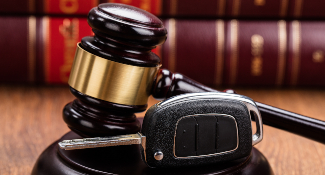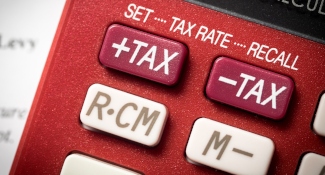In every U.S. state, except for New Hampshire, you need to purchase a car insurance policy before officially registering your new car in your state. Once you have your car insurance in place, you will need to provide proof of your policy together with a valid driver's license and your vehicle's title to one of the state's DMV (Department of Motor Vehicles).
However, some states may require proof of residence before they register your vehicle. Typically, you should register and insure your car in your home state or the state you primarily live in. So, what happens if you plan on buying a car in Florida from out of state, or if you live in Florida and bought your new car from another state?
Specific requirements for vehicle registration differ, depending on the state in which you need to register your vehicle. In this article, we focus on the state of Florida.
Florida Resident With an Out-of-State Car
__First and foremost, you are a Florida resident if you: __
- Have a child enrolled in a school in the state of Florida
- Are employed in Florida
- Have a physical address in the state
If you are a Florida resident, it is mandatory for you to register your vehicle in the state of Florida within ten days of any of the above occurring, even if you bought your car outside of Florida.
If you cannot provide proof of registration or car insurance, then you risk losing your driver's license for up to three years in the state. You may also be liable to pay additional fees as well. It is not only important to register your car to avoid penalties, but a registered vehicle ensures that it is safe and legal to drive. It means that you are not putting yourself and others at risk while driving on the road.
Registering Your Out-of-State Car in Florida?
Whether you have just moved to Florida and have a car registered in another state, or you are a Florida resident that decided to purchase your new vehicle from an out-of-state dealership or private seller, it needs to be registered in Florida. Your license plates need to be transferred to the state of Florida, too.
__In order to complete the registration, you will need to provide the following: __
- Valid proof of identification
- Current vehicle title
- Proof of Florida insurance from the insurance company.
- Completed application for state registration
- Registration fee for registering your car at your local Department of Highway - - Safety and Motor Vehicles location.
The registration fees paid will differ from one motor vehicle to another and depends on:
- What kind of car you register
- The car's weight
- The chosen license plates
- The length of time you register the car for.
Florida Law makes it mandatory that all Florida residents take their vehicles in for registration with the state's Department of Highway Safety and Motor Vehicles. You can register your car for either one or two years.
You can register your car by:
- Using the state of Florida's mobile app (MyFlorida)
- Going online to the MyDMV Portal
- Attend the Florida Highway Safety and Motor Vehicle (FHSMV) office in person
A properly registered car has the following:
- A license plate with a valid tag number
- A sticker showing the expiration date
- A registration card
New Florida Resident
If you have just moved to Florida or you have lived in the state for one to two years, then the below will apply:
- You will need to get a vehicle identification number (VIN) check and official odometer reading done
- You will need new license plates
- Completed payment for any possible sales tax on the car out-of-state
- Obtain a driver's license in Florida
- Obtain car insurance in Florida and provide proof of insurance
- Show proof of out-of-state title
If you do not have the title because a lienholder holds it, then the county tax collector will need to contact the lienholder to arrange for the new state title to be sent together with the license plate.
New Resident Florida Sales Tax
In Florida, you may need to pay sales, local discretionary, and use taxes on your new motor vehicle purchase when you first register it in your home state. Whether or not you need to pay these taxes depends on the period of time you have had the car and your choice of license plate.
For vehicles owned six months or less:
- The owner has all rights reserved and needs to pay 6% sales or use tax and local discretionary taxes relative to the area
- Florida sales tax is prorated. It depends on the taxes already paid in a different state
__For vehicles owned longer than six months: __
- You won't need to pay discretionary, sales, or use taxes for an owned vehicle bought in a different state
- Your new title and initial registration fee from the different state needs to stipulate that you have been the motor vehicle owner for longer than six months
Buying a Car From a Dealership
Authorized car dealerships can issue a temporary license plate, handle all the titling, and charge a registration fee. The fees that go along with the titling and registration won't usually appear in your contract with the purchase price. Should this happen, the dealer can only ask for the exact dollar amount in fees already paid. All charges need to be disclosed separately from the purchase price of the new or used car.
The dealership needs to transfer the vehicle's title and registration within thirty days or less. If the dealership fails to register your new vehicle within that timeframe, contact your local DMV urgently to advise on how to proceed.
The Department of Highway Safety and Motor Vehicles will have the list of contacts you need for your local county.
Private Party Purchases
If your car buying journey has led you away from dealerships and to a private seller, then you need to complete all the titling and registration forms on your own and turn them into your local county collector's office.
You will also need to complete a Bill of Sale with the previous owner of the motor vehicle to record the purchase. The completed Bill of Sale needs to be turned in by the private seller to the tax collector's office. Remember, you need to have your own copy,too.
Buying a Car in Florida From Out-of-State
If you are not a Florida resident but have purchased your new or used vehicle in the state of Florida, then you may be able to get temporary registration. This means you will need a temporary license plate and car registration tag from the local county tax collector's office.
The temporary vehicle registration legally allows you to drive your car back to a different state before registering it in your home state. You will need to pay Florida sales tax. You will also need to show proof of insurance before you can get the temporary tag.
It is important to remember that it is illegal to drive your new car from one state to another until you are the registered owner. Law enforcement officials will impound your vehicle if you cannot provide proof of insurance and proper vehicle registration.
__The general rule in the U.S. is that your vehicle must be registered in the state where you reside, which is your main address noted by one of the following: __
- Your primary residence i.e. where you live most of the time
- The physical address on your driver's license
Your postal address for bills and other correspondence - Where you are registered to vote
- The address listed on your federal and state tax returns
So, if you are buying a car in Florida from out-of-state, you will need to register it in your home state, bearing in mind that you will be responsible for the Florida sales tax.
Checklist for Buying a Car From Florida When Living in a Different State
__It is always wise to keep a checklist handy if you are buying a car from Florida out of state. Below is a basic checklist you can use: __
- Choose what type of car you want: A new car or a used car?
- Where will you purchase the vehicle: A dealership or private party?
- Vehicle inspection: Thoroughly inspect the inside and outside of the car. Ask for a vehicle history report for all the services and maintenance history.
- Take the car for a test drive and listen for any strange or loud noises.
- State emission requirements: Know your home state's rules related to carbon emission.
- Vehicle transportation: Will you drive the car from Florida to your home state or have it shipped?
- Car registration: You may have a temporary registration to drive the car from Florida to another state, but you will need to register your vehicle in your home state.
- Car insurance: You will need to secure insurance for your new car in your home state.
- Finance or cash purchase. Will you take out an auto loan from a lender, or can you afford to pay the car in full without needing a loan.
When buying a car in Florida from out of state, always be mindful of your own hometown state's laws regarding registration and ensure you are versed in Florida's laws and regulations, too.


